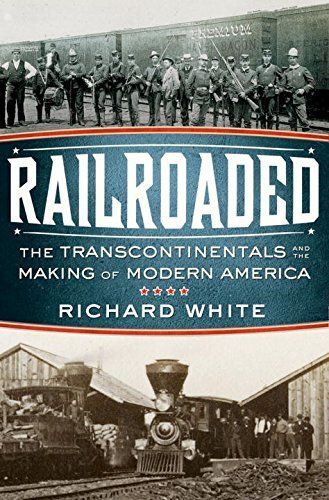
Railroaded The Transcontinentals and the Making of Modern America
Describes the roll played by the transcontinental railroads in the making of modern America during the Gilded Age, discussing the economic panics caused by their debt and how their dependence on donations from the wealthy initiated new forms of corruption. 20,000 first printing.
Reviews
Bryan Alexander@bryanalexander